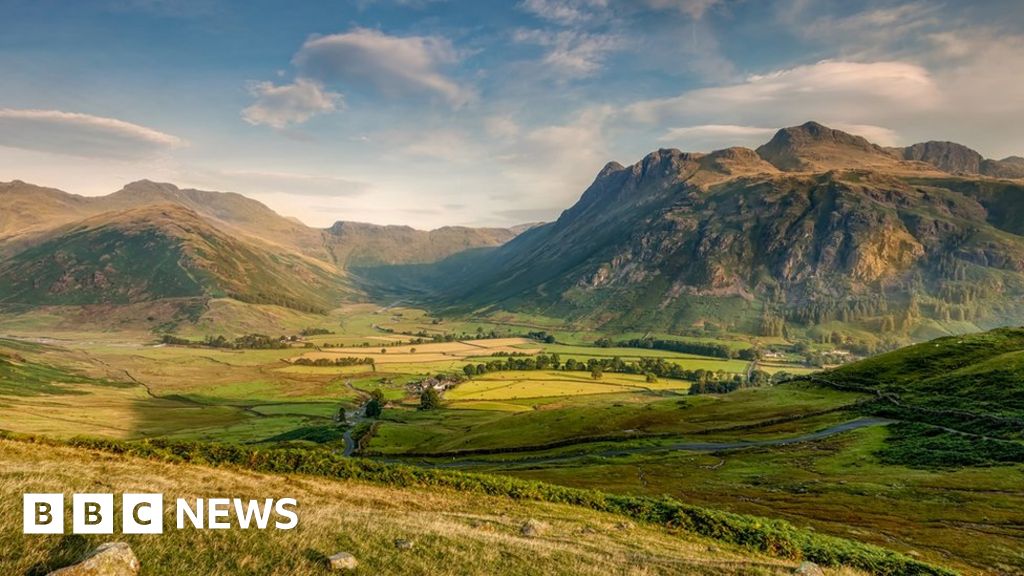 Image copyright
Getty Images
Image caption
Claire O'Neill is critical also of former Australian prime minister Tony Abbott's new trade position
Image copyright
Getty Images
Image caption
Claire O'Neill is critical also of former Australian prime minister Tony Abbott's new trade position
The UK's former climate chief has criticised the Prime Minister over failings in the run-up up to next year’s climate summit, COP26.
Claire O'Neill condemns what she calls broken promises and backsliding on climate commitments.
She says there's been mismanagement of the basic details of the summit.
A government spokesperson said the UK was aiming for the most ambitious environmental programme of any country on Earth.
But Claire O’Neill – formerly Claire Perry - says this claim is undermined by No 10's appointment of the Australian climate sceptic Tony Abbott as a UK Trade Ambassador.
It’s a particularly bad decision, she says, as it’s clear that trade policies must now be harnessed to protect the climate.
COP26 was due to be held in Glasgow this November but has been postponed by 12 months because of the Covid-19 crisis.
Claire O’Neill says a climate agreement next year is "desperately needed" but argues the government's actions make people question whether it's either committed enough or capable enough to bring about a worthwhile deal on climate action.
Ms O'Neill says the core climate negotiations remain "locked in a zero-sum struggle, long on process and short on action while emissions keep rising".
She's just joined a global sustainable business organisation - WBCSD - in the belief that business is now the most promising source of action to protect the climate.
'Tough decisions' needed
Ms O'Neill says she doesn't want to cast despair on the team working towards the climate conference. In fact, she praises ministers such as Michael Gove, Zac Goldsmith and Dominic Raab. But she says Mr Johnson "just doesn't get climate change".
She continued: "As the climate minister and then [chair of the climate summit], I kept facing the inconvenient truth that for all the thousands of hours of diplomacy since the first COP our achievements to date are quite meagre.
"The truth is that the short-termism and trade-offs of politics make it extremely difficult for national governments to bring forward sustained climate leadership, and to make the sometimes-tough decisions needed for short-term disruption for long-term gain.
"And of course, in the world’s largest-emitting economy of China, leaders don't even have to pretend to worry about the concerns of voters."
Commerce versus politics
Ms O'Neill did little to hide her frustrations in her time as chair of the up-coming climate summit and had a reputation for being a loose cannon. She was sacked by Mr Johnson, and has now turned her barrels on him.
But she said amidst the gloom there was a bright spot.
"The world's companies, banks and investment firms are increasingly realising that not only will future returns be heavily impacted by a lack of climate risk management, but that there are real first-mover advantages to rapidly implementing decarbonisation and putting in place the investments and governance needed for the long term.
"They have the tools to price climate risk and act accordingly and the simple fact that large corporate CEOs stay in role for an average of eight years – twice as long as most democratically elected political leaders - means that these changes are more likely to stick."
'Transformative' policies
The government spokesperson said: "This year we have set out billions in support for our low-carbon economy and made good progress by committing to consult on ending coal power and phasing out new petrol and diesel cars, supporting renewable energy projects across the UK and announcing over £3bn to transform the energy efficiency of the UK's homes and public buildings.
"Ahead of COP 26 (the Glasgow climate conference), we will be setting out plans covering the whole breadth of government to make progress on our net zero commitments, including a Transport Decarbonisation Plan, Energy White Paper and an English Tree Strategy."
The spokesperson also mentioned the Citizens’ Assembly - commissioned by MPs to understand public preferences on how the UK should tackle climate change. It will report on Thursday.
Follow Roger on Twitter @rharrabin

 5 years ago
1044
5 years ago
1044 

